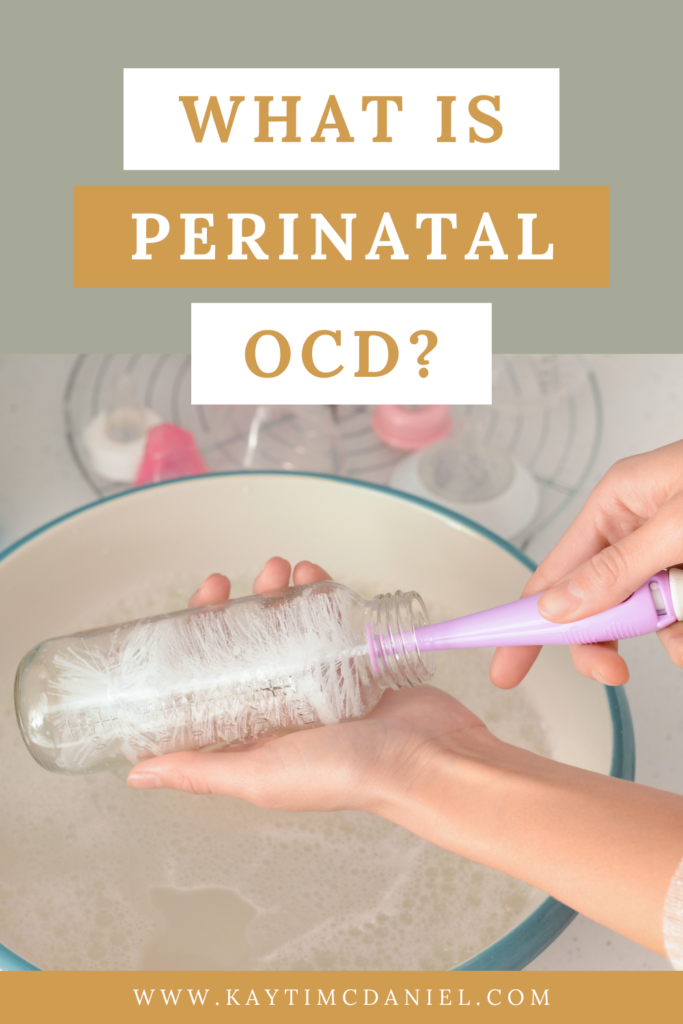
What is perinatal OCD?
Perinatal OCD (obsessive compulsive disorder) is one of several perinatal mood and anxiety disorders (PMADs) that can show up during pregnancy and/or the postpartum year. It includes prenatal OCD during pregnancy and postpartum OCD after birth.
Perinatal OCD involves two main symptoms: obsessions and compulsions.
What are obsessions?
Obsessions are intrusive and unwanted thoughts, urges, and images that play on repeat in your mind. They are often scary and sometimes violent. Some common examples of obsessions in perinatal OCD are:
- thoughts of you accidentally or intentionally harming your baby.
- urges to sexually abuse your baby.
- images of someone else harming your baby.
- fear of your baby being contaminated.
- worry about your baby getting really sick.
- images of your baby dying.
To some extent, your new parent brain is primed for these thoughts. Thoughts like this can pop up as a way to warn you — a loving, dedicated, protective parent — of all the possible things that could harm your baby SO THAT you can prevent that harm. Thoughts like this may be considered obsessions when they show up often, show up intensely, and are really difficult to manage.
If these thoughts are really distressing to you, that is a GOOD SIGN. Your distress about these thoughts is a strong indicator that you don’t want these things to happen and, actually, you’re going to do whatever it takes to make sure they don’t. Sometimes, this leads to compulsions.
What are compulsions?
Compulsions are patterns of physical or mental actions that you take, often in response to an obsession. Some common examples are:
- checking on your baby frequently to make sure they’re okay.
- making sure that you’re never alone with your baby.
- avoiding your baby or certain baby-care tasks.
- not allowing others to hold or care for your baby.
- washing and re-washing baby’s items or space.
- seeking reassurance from others that your baby is healthy.
- mentally replaying your day to reassure yourself that your baby is safe.
Compulsions in perinatal OCD are repetitive and time-consuming. They can make it hard to care for yourself, to care for your baby, or to generally function in your life. While they can be triggered by an obsession, they’re often unrelated (on a practical level) to your obsession’s safety-concern entirely. Even when they seem to directly address your safety concerns in the short-term, they may have unwanted longer-term consequences for you and your baby.
Perinatal OCD is treatable.
If you think you may be experiencing perinatal OCD, please know that this experience is treatable and can be temporary. To learn more about perinatal OCD, I recommend checking out the Perinatal OCD Resource Center on the International OCD Foundation website. There you’ll find more information about this condition, recommended treatment options, and additional resources.